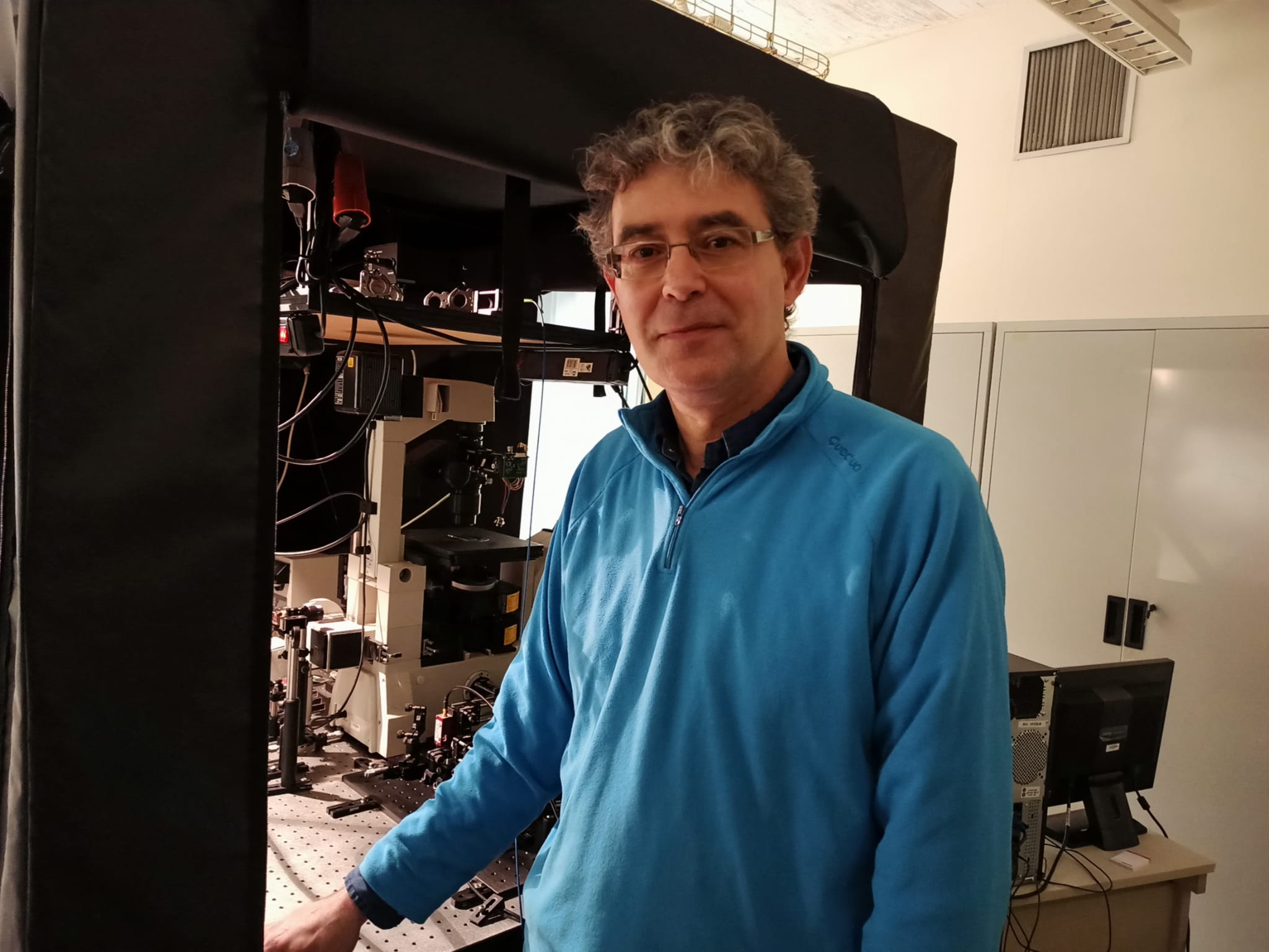
The UB will develop a project that will redefine the limits of biological image analysis
Researchers from the University of Barcelona (UB) have received a Product grant from AGAUR to develop a super-resolution microscope prototype that integrates the functionalities of confocal microscopes —the most widely used technology in biological image analysis today.
The project, carried out in collaboration with the Computer Vision Center (CVC) and led by Dr. Mario Montes, professor at the Department of Applied Physics in the Faculty of Physics, has been awarded a total grant of €150,000, of which €100,550 corresponds to the UB. The grant is awarded by the Department of Research and Universities of Catalonia and is intended to finance the valorization of technology or knowledge generated by research teams in Catalonia.
Super-resolution microscopy is regarded as one of the most significant technological advances in recent years, as it enables the observation of biological structures at the molecular scale. However, confocal microscopes remain the reference tool since—despite offering lower resolution—they provide wider fields of view and additional functionalities such as photomanipulation (the ability to act on a biological sample using light), essential for visualizing dynamic biological processes.
In this project, the UB’s Biophotonics Research Group will develop a structured illumination microscopy (SIM) prototype that not only improves upon existing models but also integrates key confocal capabilities.
“Our goal is to develop a device that, once fully implemented, will not only enable a more powerful SIM but will also function as a complete confocal system. This will open new opportunities to explore cellular structures and functions that have so far been inaccessible with current techniques, with major applications in areas such as virology, neurodegeneration, and cancer,” explains Dr. Mario Montes.
The innovative technology uses lasers capable of projecting programmable light patterns to illuminate biological samples, structuring and modulating light to achieve images with twice the resolution of most conventional super-resolution microscopes. It also incorporates key features of modern confocal systems, such as optical sectioning—which allows sharp imaging of a specific plane within a 3D sample by removing out-of-focus light—and photomanipulation.
Technology licensed to a microscope manufacturer
The technological foundation of this project has already proven to surpass the resolution of conventional SIM systems. This previous development, which also received an earlier Product grant, has led to a licensing agreement between the UB and a major microscope manufacturer. The company aims to develop a super-resolution microscope capable of capturing images with twice the resolution of standard models.
This technology is protected in the main microscopy markets through a broad family of patents already granted in the United States, China, Japan, and the European Union.
Tripling the current field of view
With the new Product grant, the challenge is to achieve a super-resolution device with triple the current field of view. This improvement will position the new microscope at the level of the best confocal models in terms of their key performance features, but with significantly higher resolution. The specific goal is to build a prototype and validate it in a relevant environment, prior to its future commercialization.
Commitment to the Sustainable Development Goals
The development of this project contributes to several United Nations Sustainable Development Goals (SDGs), particularly SDG 3 (Good Health and Well-being), by advancing imaging technologies that support biomedical research and personalized medicine. It also aligns with SDG 9 (Industry, Innovation and Infrastructure), by promoting innovation in medical imaging technologies, and SDG 10 (Reduced Inequalities), as its modular and potentially affordable design could make advanced microscopy tools more accessible to research environments with limited resources.
The project, file number 2025 PROD 00109, falls under the Knowledge Industry call in the Product Grants category, aimed at developing prototypes and promoting the valorization and transfer of research results generated by research teams in Catalonia.

